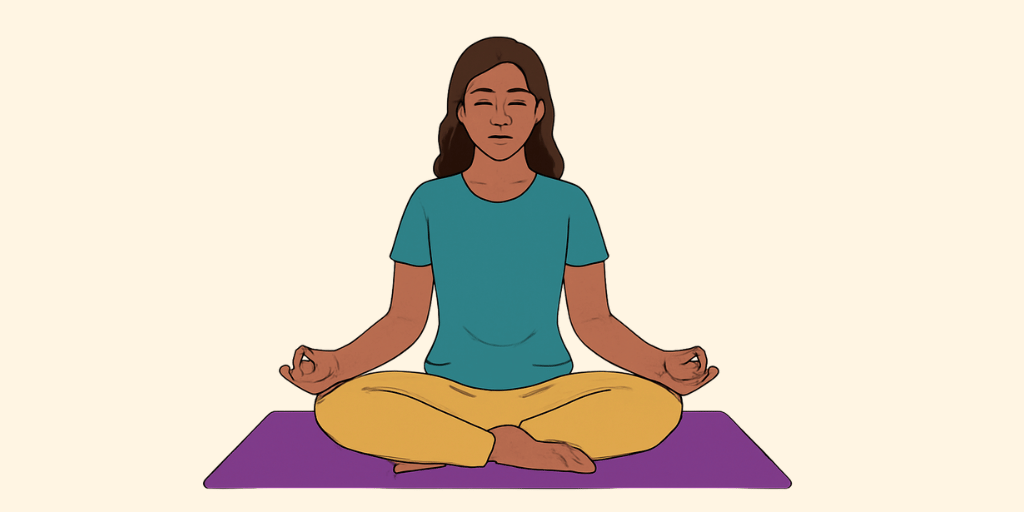Sanskrit Name: बाह्य कुम्भक
English Name: External Retention
Description:
The Sanskrit term Bahya Kumbhaka is derived from “Bahya” (external) and “Kumbhak” (breath retention), meaning holding the breath after exhalation in Pranayama (yogic breath control). This advanced technique helps regulate prana (life force energy) by momentarily suspending the breath after a full exhalation, promoting deep relaxation, heightened awareness, and inner stillness.
Benefits:
Bahya Kumbhak is practiced to purify the respiratory system, strengthen lung function, and enhance breath control. By keeping the lungs empty for a short duration, the body optimizes oxygen utilization, stimulates metabolic efficiency, and clears mental distractions. This technique also activates the parasympathetic nervous system, reducing stress, anxiety, and emotional turbulence, while promoting mental clarity and focus.
In yogic traditions, Bahya Kumbhak is integrated into practices such as Kapalabhati (skull-shining breath) and Bhastrika (Bellows Breath), enhancing energy flow and spiritual awareness. In modern wellness, it aids in improving lung capacity, increasing mindfulness, and boosting endurance for both physical and mental performance.
By incorporating Bahya Kumbhak into daily Pranayama, practitioners cultivate inner discipline, self-control, and a profound sense of peace, leading to a balanced and harmonious state of well-being.
Medical Conditions(Avoid):
Bahya Kumbhaka, or external breath retention, should be avoided in the following medical conditions:
- Hypertension: Individuals with high blood pressure may experience increased stress on the cardiovascular system during breath retention.
- Cardiovascular Issues: Those with heart diseases or irregular heart rhythms should avoid this practice due to potential strain on the heart.
- Respiratory Conditions: Asthma or chronic obstructive pulmonary disease (COPD) can be aggravated by breath retention, leading to breathing difficulties.
- Anxiety Disorders: People with anxiety may find that breath retention increases their stress levels or triggers panic attacks.
- Recent Surgery: Post-operative patients should refrain from this practice until fully healed to avoid complications.
- Pregnancy: Expecting mothers should avoid this as it may affect oxygen supply to the fetus.
Always consult a healthcare professional before practicing any form of breath retention, especially if you have underlying health concerns.

